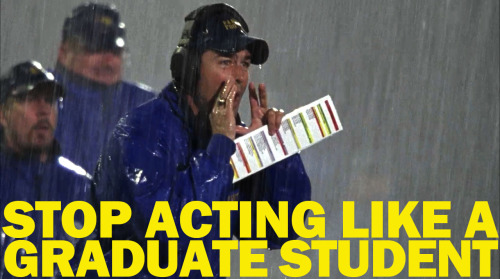Put “do not cite, do not circulate” on your paper. I received a paper for the upcoming ISA which had that instruction on it. I yelled at (ok, I mocked) my students last week for doing the same thing. In the olden days, folks would put “do not cite” on their papers because they wanted to polish them before submitting, that they didn’t want to have errant results widely circulated. Perhaps there is a fear that if a paper is circulated, it might get scooped.
But NO!!!!
While citation counts are problematic for a variety of reasons (including citation patterns reflect sexism in the business), the game is the game. That is, to get hired, to get promoted, one’s citation counts are a key metric (not a perfect metric, not even a great one) that Chairs and Deans and Hiring/Promotion committees consider. H-indexes which measure breadth and depth of citation quickly (H = the number of articles that reach x many citations–so if you have 20 articles with 20 citations or more, your H-index is 20) are a thing. Citations take time to build–first you have to have folks read your piece and then they have to refer to it in something that gets picked up by the various citation counters. Ye olde social citation index only included cites in journal articles, not books, not edited volumes, not working papers. Scholar.google.com picks up far more stuff. One paper I co-authored has 25 cites, which helps my h-index. Scholar google has become so hip that folks tend to expect one to have a scholar google profile so that people can quickly find your publications, how they have been cited and so forth.
Anyhow, citations take time to accumulate, and if one is going up for tenure, one has precious little time for stuff to get out and then get cited in stuff that gets out. Putting “do not cite” on one’s pieces makes it much harder for citations to accumulate.
Is there a better way to measure impact for a scholar? Probably. But citation counts are better than the old system (the Old Boys Network), and don’t blame citation counts for distorting the work we do, and don’t blame citation counts for distorting the work we do. They can be gamed–not just citing oneself but also joining citation cartels where people cite friends or whoever whether their stuff is really that integral to the argument or not. So, one can hate the game, and one should not do the bad stuff (excessive self-citation or facilitate cartels), but one should be aware of the game and not handicap oneself.
Oh and that fear of being wrong? And being cited for it? Well, I remember watching someone give a talk on federalism and put up a 2×2 table of scholarship on that topic–whether federalism is good or bad for ethnic conflict (I forget the other part of the 2×2)–and I was in both good and bad columns for having argued in different places that federalism can cause and ameliorate ethnic strife. I blushed a bit and then we moved on.
One last thing–the idea of all of this conferencing and writing and publishing is to get our ideas out there. Putting any obstacles in the way seems like a bad idea.
Steve Saideman is Professor and the Paterson Chair in International Affairs at Carleton University’s Norman Paterson School of International Affairs. He has written The Ties That Divide: Ethnic Politics, Foreign Policy and International Conflict; For Kin or Country: Xenophobia, Nationalism and War (with R. William Ayres); and NATO in Afghanistan: Fighting Together, Fighting Alone (with David Auerswald), and elsewhere on nationalism, ethnic conflict, civil war, and civil-military relations.


0 Comments
Trackbacks/Pingbacks